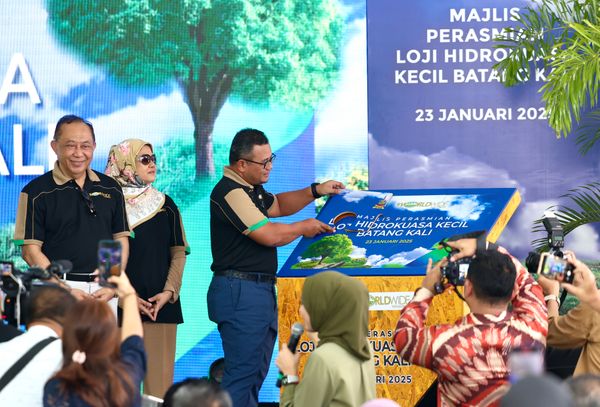By Danial Dzulkifly
BATANG KALI, Jan 23 — The state government is considering alternative water sources to address the increasing demand for cooling systems in existing and future data centres, said Menteri Besar Dato’ Seri Amirudin Shari.
He said that to date, Selangor has approved applications for 26 data centres, many of which are operational, with more applications pending.
“Data centres often require water of higher purity than regular drinking water,” he said at a press conference at the launch of the Batang Kali small hydropower plant here today.
“They (data centre operators) are also exploring alternative technologies to cool their equipment, such as air conditioning systems and other liquid-based solutions currently under development.
“We are also examining the necessity of abstracting water directly from rivers, treating it and purifying it specifically for use in these centres. This is one of the solutions being considered to meet their demands,” he said.
According to Amirudin, studies indicate that if Selangor were to approve all pending applications for data centres, the projected demand for treated water would reach approximately 200 million liters per day (MLD), equivalent to about 80 Olympic-sized swimming pools.
“However, if they (operators) can use alternative resources or if we establish dedicated facilities to treat raw river water specifically for data centre use, this demand could be managed more effectively.”
On Tuesday, National Water Services Commission (SPAN) chairman Charles Santiago called Malaysia’s push for more data centres to attract hi-tech investments unsustainable due to the significant reliance on potable water.
Santiago said if both federal and state administrations are not careful, the country could face a water crisis.
Amirudin explained that the state, through Pengurusan Air Selangor Sdn Bhd, has enacted a comprehensive plan to meet demands of data centres, local industries and the local population.
“With the plan set by Air Selangor, I am confident that our supply will be sufficient. The plan, set to be completed by 2026, will increase capacity by 1,400 MLD.
“Additionally, we are upgrading several water treatment plants (WTP), such as the Labohan Dagang facility. If needed, other facilities like the Phase 2 of the Langat 2 WTP can be upgraded.
“The Langat 2 Phase 2 is among the major projects underway, and further capacity expansions can be implemented if necessary. This will ensure reliable water supply, even for data centres,” he said.




